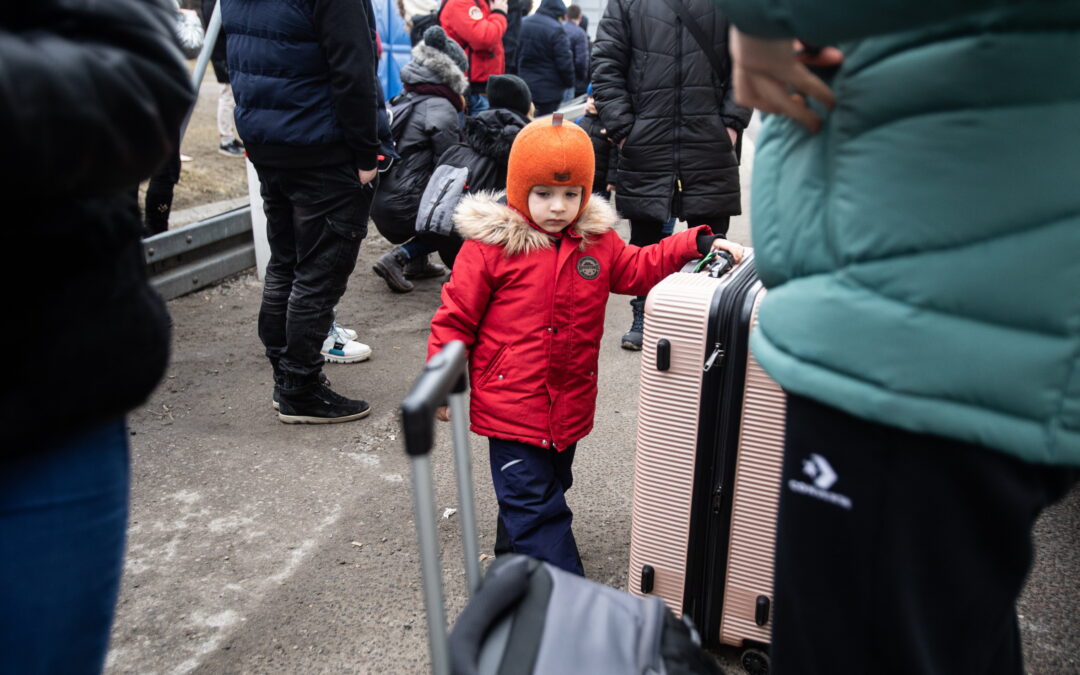Poland’s education minister, Przemysław Czarnek, has pledged that the country’s schools are ready to accept hundreds of thousands of children fleeing the war in Ukraine. He noted yesterday that school-age children make up half of the 380,000 people who had crossed the border since Thursday.
The ministry has published information for people wanting to register their children at schools and plans to draft in students to help with translation, although local authorities have raised concern over whether the system can cope with the influx.
Over 90% of Poles support accepting Ukrainian refugees, while 64% say they are personally willing to help them, according to two new polls
Recent days have seen a flood of support from Polish society for the hundreds of thousands of people fleeing Ukraine https://t.co/xe70yzxPuP
— Notes from Poland 🇵🇱 (@notesfrompoland) March 1, 2022
In what he described as an “important and moving conversation” with the Ukrainian education minister, Czarnek said that he had informed his counterpart about the system being put in place for Ukrainian school-age children. He noted that some had even arrived in Poland without their parents.
“The system must be open to welcoming them to school, taking care of their education and upbringing,” Czarnek said, quoted by TVN24. “To allow them to catch their breath from this traumatic experience.”
Even before Russia’s invasion of Ukraine, Czarnek had revealed that plans were being put in place “for the children of Ukrainian refugees in the event of an armed conflict”.
Wspieramy uchodźców z Ukrainy ‼️
Każdy uczeń, student potrzebujący pomocy w Polsce – otrzyma ją!
Przygotowaliśmy informacje m. in. jak zapisać dziecko do szkoły czy otrzymać pomoc psychologiczno-pedagogiczną. 🇵🇱🇺🇦Szczegóły ➡️https://t.co/Xv3lT3bLH3. pic.twitter.com/e8ojGV9OII
— Ministerstwo Edukacji i Nauki (@MEIN_GOV_PL) March 1, 2022
Although some of the refugees arriving will not remain in Poland, others are coming all the time. Those numbers will put a significant strain on an education system already hit by shortages of teachers.
In 2020/21, there were 4.9 million pupils in Polish schools, including 60,000 Ukrainian ones, from Poland’s largest immigrant group.
Czarnek, however, assured that there is a large amount of school infrastructure available to create appropriate conditions for arriving Ukrainian children, giving an example of a centre for education development near Warsaw hosting 70 people from Ukraine from today.
The education ministry has published information for new arrivals from Ukraine wanting to sign their children up to school. Pupils aged between seven and 18 have the right to a place at the school in whose catchment area they are currently residing on the same basis as their Polish peers.
Their parents or guardians should submit applications to that school. If it does not have places, the local council will offer an alternative which has space to accommodate the pupil.
People registering their children for school should ideally have certificates showing their educational history, but if these are unavailable they can write a declaration giving the name of the pupil’s previous school and number of years completed, reports Nowiny24.
A channel for preschoolers run by Polish public TV will begin broadcasting programmes in Ukrainian for children who have fled to Poland https://t.co/pI19PvktHc
— Notes from Poland 🇵🇱 (@notesfrompoland) March 1, 2022
Two tracks are available to foreign children starting school who do not know Polish. They can take part in additional language lessons as well as joining a preparatory class tailored to their needs.
With a significantly increased demand for such service for Ukrainian pupils, the ministry hopes that students as well as retired teachers will be able to help, Czarnek explained.
“School superintendents have made lists of teachers who know Ukrainian and Russian, which are available to headteachers,” he said. University rectors will coordinate lists of students able to assist teachers, for example by translating.
Some educators and local authority representatives, however, are warning that the solutions currently in place may not be sufficient to cope with the difficulties faced by children arriving in Poland. They have appealed for additional measures to be introduced, reports TVN24.
The education ministry is only now slowly beginning to act after previously being convinced that “everything is wonderful and nothing needs changing,” Marek Wójcik of the Union of Polish Cities told Gazeta Wyborcza.
Wójcik said that urgent actions and practical solutions were required, such as increasing permitted class sizes. After consulting with local authority representatives, the ministry agreed to increase preparatory-class sizes from 15 to 25 students.
Main image credit: Jakub Orzechowski / Agencja Wyborcza.pl

Ben Koschalka is a translator, lecturer, and senior editor at Notes from Poland. Originally from Britain, he has lived in Kraków since 2005.




















